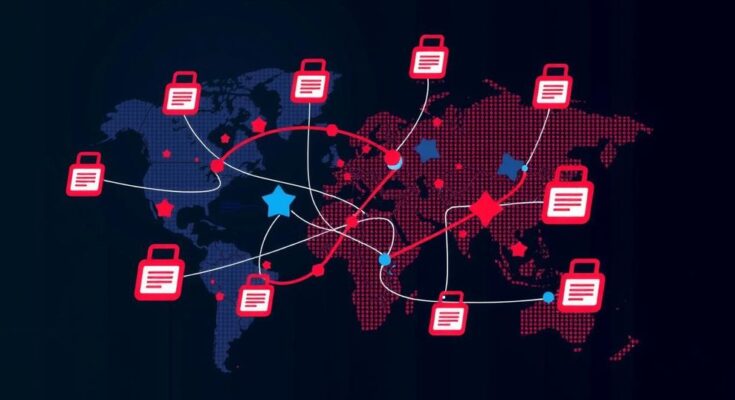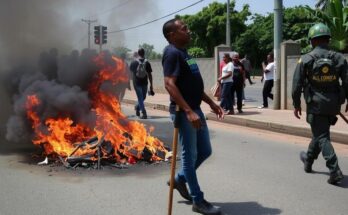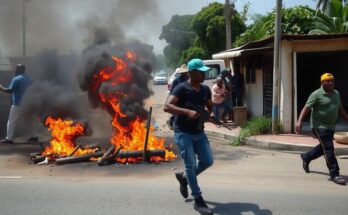US intelligence warns that insider threats are a significant risk during the upcoming elections. Defined by the Department of Homeland Security, these threats could jeopardize electoral integrity. The memo highlights the risks posed by individuals in positions of authority and outlines behaviors indicative of such threats. Increased infiltration of election deniers into election systems has raised concerns, paralleled by cyber threats from criminal organizations. Overall, the directive emphasizes the necessity of heightened vigilance in protecting election infrastructure.
Recent intelligence reports indicate that insider threats are a significant concern for election centers in the United States as the upcoming election approaches. According to a memo reviewed by WIRED, insider threats, as defined by the Department of Homeland Security, involve individuals who exploit their authorized access—either intentionally or unintentionally—to harm the election process. This warning was part of a broader situational awareness bulletin issued by the Colorado Information Analysis Center, which encompasses assessments from federal, state, and local intelligence agencies. Kevin Klein, the director of Colorado’s Division of Homeland Security and Emergency Management, noted, “The entire threat picture is elevated for this election… insider threats are a greater concern than in previous elections.” The bulletin delineates specific behaviors that may signify insider threats, such as tampering with ballots and granting unauthorized access to voting locations. This heightened alert arises amid increasing reports of election deniers infiltrating various levels of the electoral infrastructure since the 2020 election cycle. Reports indicate that these individuals have risen to prominent roles within election operations, raising fears of potential disruptions to electoral integrity. For instance, an investigation cited by WIRED uncovered numerous pro-Trump conspiracy theorists holding influential election positions, suggesting a deliberate effort to influence electoral processes. Historically mundane positions have transformed into focal points of scrutiny in recent years, with election officials facing significant threats and a heightened turnover rate. The U.S. Justice Department established the “Election Threats Task Force” in response to escalating incidences of harassment and intimidation faced by election workers. Additionally, U.S. intelligence agencies are not only focused on insider threats but also monitoring external dangers, including cyber threats posed by criminal organizations. A related intelligence memo suggests that these criminal activities may present a greater risk to election infrastructure than traditional state-sponsored threats from nations such as China and Russia. As the electoral landscape becomes increasingly volatile, officials underscore the necessity for vigilance against both insider and external threats, reinforcing commitments to protect the integrity of election systems.
Insider threats represent a critical concern for the U.S. electoral process, particularly in light of rising extremism and misinformation campaigns that have intensified since the 2020 elections. With the infiltration of election deniers into various operational roles, intelligence agencies emphasize the urgent need to identify and mitigate potential risks. The incorporation of these previous trends, combined with the realities of growing online extremism and hostile cyber activities, paints a complex portrait of the challenges facing the electoral process as the country approaches the 2024 elections.
The intelligence community’s warnings about insider threats highlight a precarious environment as the election approaches. With the potential for both internal and external disruptions looming, it is imperative for election officials to remain vigilant. The stakes are elevated, and there is a critical need to safeguard the democratic process against the threats posed by both conspiracy-driven infiltration and cybercrime.
Original Source: www.wired.com




